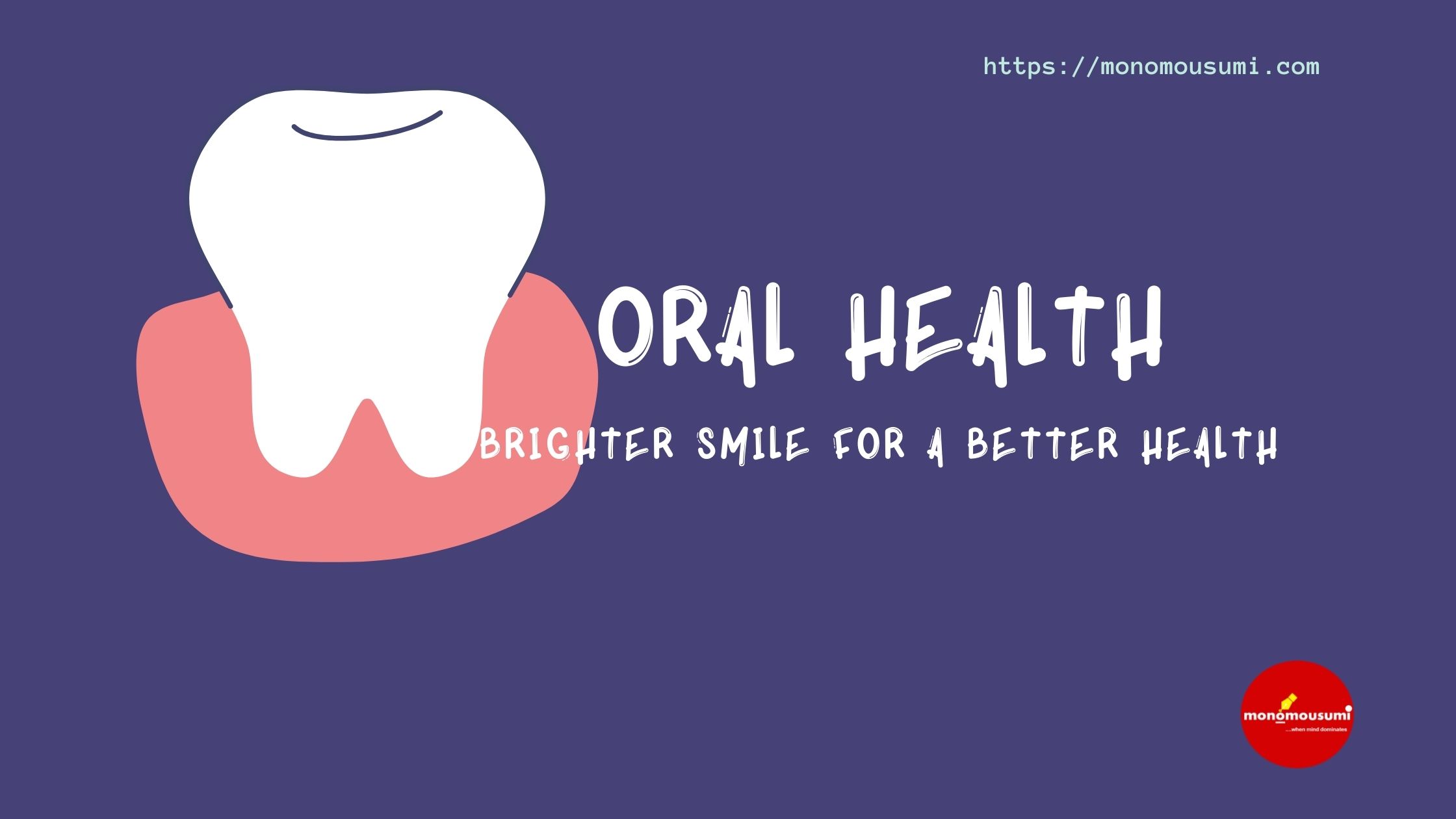
A bright smile highlights clean white teeth and shiny firm gum. While good oral health allows us to smile confidently and improve our quality of life. Oral health has been listed as one of the ten major standards of human health by the World Oral Health Organization. This shows that good oral health is important to be a healthy person, not only to physical health but also to mental health. People with good oral health will have more confidence to smile and talk to others. On the opposite side, people with bad oral health have a higher chance to suffer from depression and low self-esteem due to toothache, bad breath, and other oral problems.
Do you know oral health and dental care can affect the overall health of the body? The mouth is the entrance to the body. You can use your mouth to tell others how you feel. But without saying a word, your mouth can still provide clues to your overall health. Many new studies support what dental professionals have suspected for many years – oral diseases may be related to problems with other organs in the body.
What problems can oral health cause? Problems that may be caused or exacerbated by unhealthy teeth and gum disease include heart disease, stroke, diabetes, premature babies and low birth weight babies, respiratory system (pulmonary/ lung) disease, dementia, etc.
How does oral health affect the heart? People with gum disease are nearly twice as likely to have cardiovascular disease (coronary heart disease) as those without gum disease. It is because bacteria in the mouth will enter the blood circulation. Bacteria produce toxin by-product, which in turn affects the heart, causing the platelets in the blood to clot in the blood vessels of the heart. This makes it easier to form blood clots. Blood clots reduce normal blood flow and prevent the heart from getting all the nutrients and oxygen it needs. If blood flow is severely blocked, it can cause a myocardial infarction (heart attack).
Besides, several studies have analyzed the relationship between oral infections and stroke. These studies have found that people who have had a stroke are more likely to have gum disease than people who have not.
Never neglect gum disease! It could be a warning to your body’s health. Some of the common signs and symptoms of gum disease include gum bleeding, swollen, redness, pus discharge, and pain.
Many researchers have proven gum disease and diabetes are interrelated. Diabetic patients are more likely to develop gum disease than non-diabetic patients. This is probably because people with diabetes are more susceptible to infections and suffering from delayed wound healing. Thus, people who do not know they have diabetes or have not controlled their diabetes are particularly at risk of developing complications. If you have diabetes, it is important to diagnose and treat any gum disease, because gum disease not only affects the blood sugar but increases the risk of tooth loss.
The condition is more unpleasant when diabetic women with gum disease get pregnant. How does gum disease affect an unborn baby? Pregnant women with gum disease are more than twice as likely to give birth prematurely and to give birth to low-birth-weight babies due to premature delivery. Studies have shown one in four pregnant women with gum disease will give birth before 35 weeks. Proper treatment of gum disease during pregnancy can reduce the risk of preterm birth.
Not only that, people with gum disease have more bacteria in their mouths, so they may be more susceptible to lung infections. It is generally believed that bacterial lung infections are caused by the inhalation of droplets from the throat and mouth into the lungs. This can lead to infections such as pneumonia, or aggravate existing conditions. The impact is particularly obvious for frail elderly people, who may die from pneumonia caused by bacteria in the mouth. Therefore, good oral hygiene is particularly important for this population.
Some other habits can cause gum disease as well, for example, smoking. Smokers are more likely to develop bacterial plaque that causes gum disease, bad breath, dry mouth, and staining on the tooth which may lead to the formation of tooth caries. Smoking reduces the oxygen in the blood and prevents the infected gums from healing. Smoking can also cause a more serious condition – Oral Cancer.
It is never too early to treat any oral disease. Visiting your dentist to have regular dental check-up give you a better picture of own oral health status. So, start a healthy lifestyle and smile brightly while you can!
Here are some tips on maintaining good oral hygiene:
- Effective tooth brushing twice a day, brushing your teeth before going to bed at night is more important, insist on brushing your teeth in the morning and evening, and gargle after meals;
- Advocate the use of fluoride toothpaste, fluoride can help to strengthen and remineralization of enamel (outer surface of the tooth);
- Eat a healthy diet to protect your teeth, minimize the number of times you eat sugar per day, drink less carbonated beverages, and stop eating after brushing your teeth before going to bed at night;
- Check your oral health at least once a year to detect oral diseases in time and treat them early;
- Do not get pregnant with oral diseases;
- Parents should clean or brush the oral cavity of infants and young children;
- Quit bad oral habits like sucking milk bottle, sucking finger, biting on pen and smoking;
- No matter how many teeth are lost, they should be repaired in time.
By NG SZE QIN
Write and Win: Participate in Creative writing Contest & International Essay Contest and win fabulous prizes.


